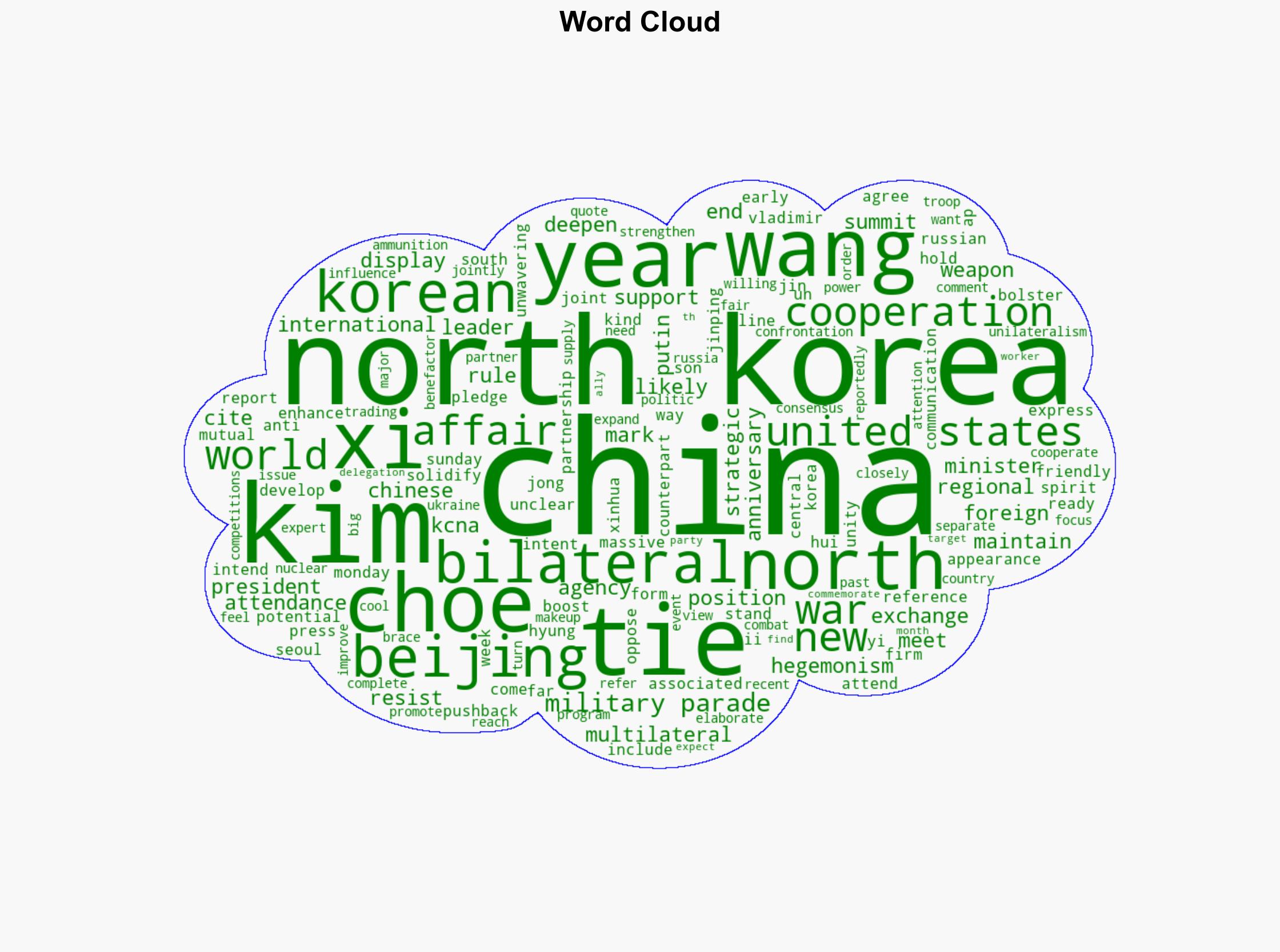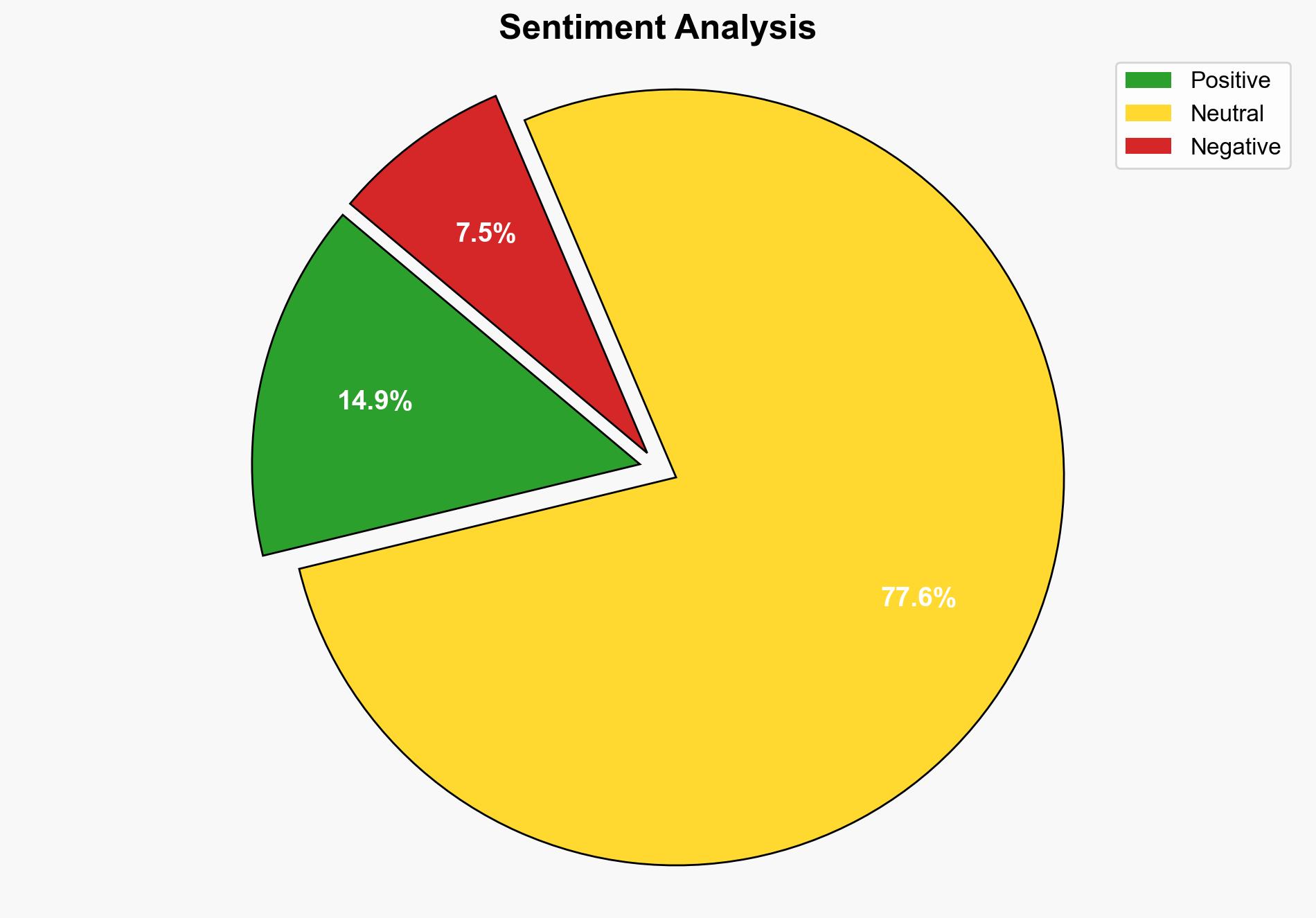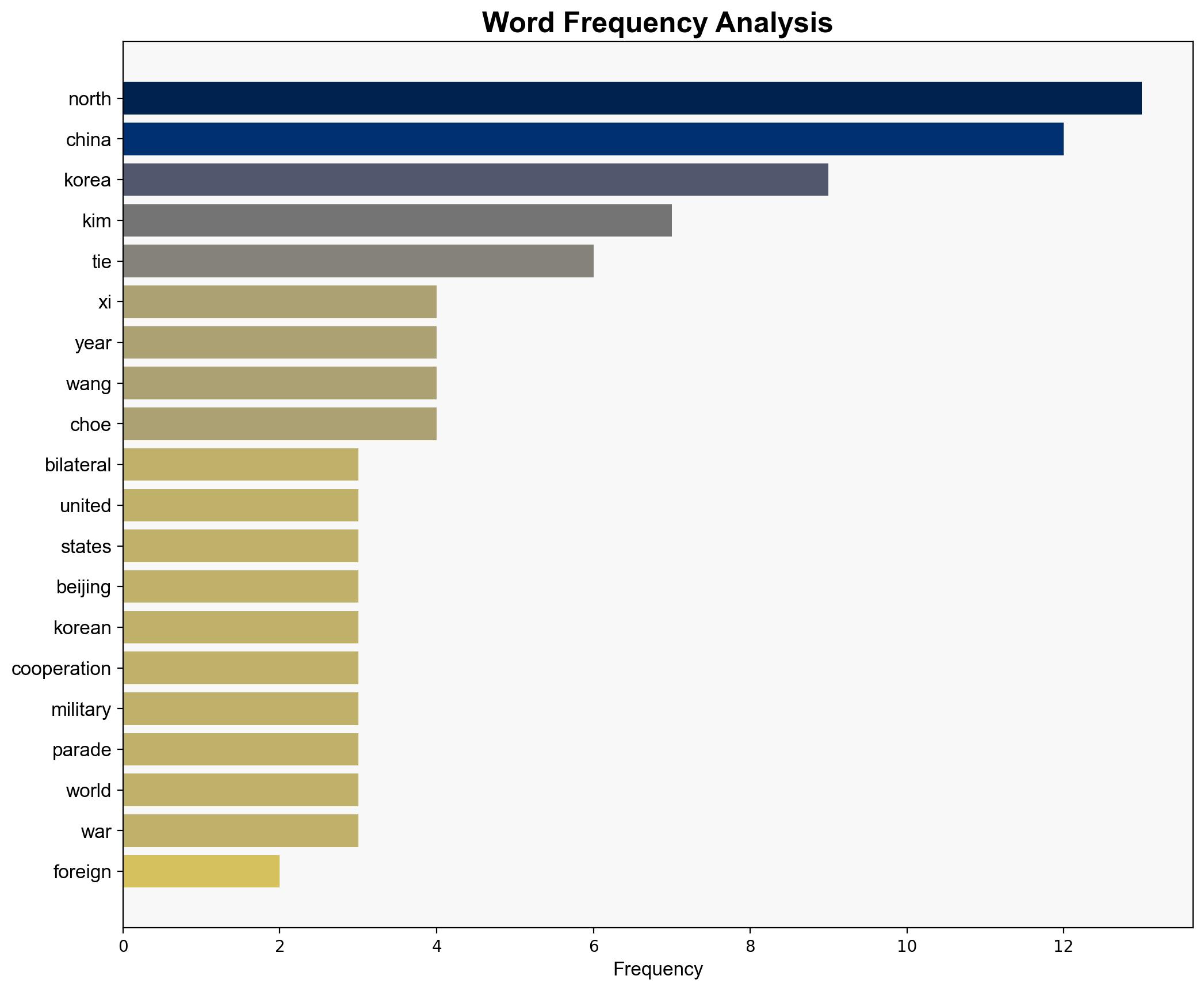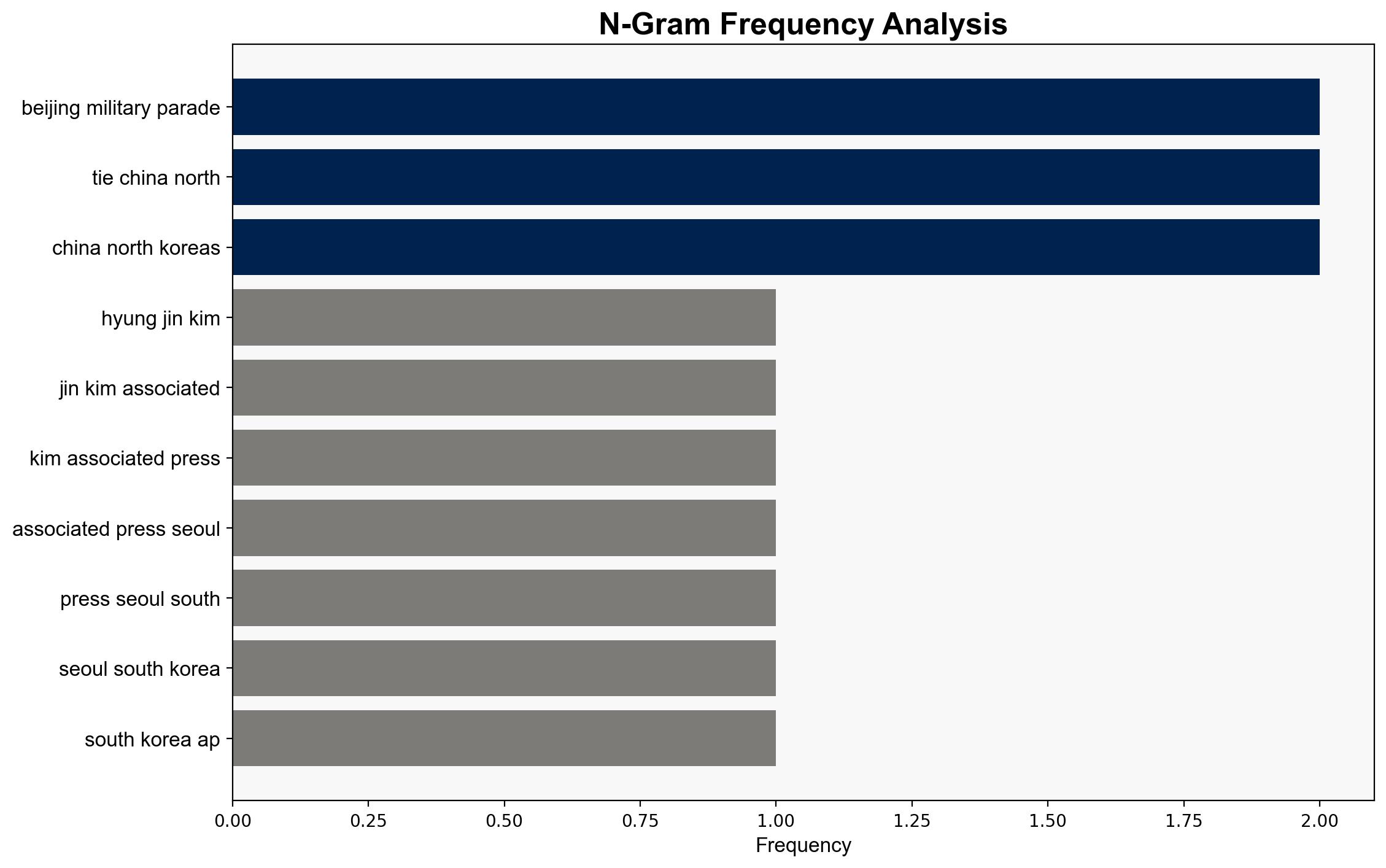Top diplomats of North Korea and China agree to deepen ties and push back at the United States – Boston Herald
Published on: 2025-09-29
Intelligence Report: Top diplomats of North Korea and China agree to deepen ties and push back at the United States – Boston Herald
1. BLUF (Bottom Line Up Front)
There is a high confidence level that the meeting between North Korean and Chinese diplomats signifies a strategic alignment against perceived U.S. hegemonism. The most supported hypothesis is that this alignment is primarily driven by mutual geopolitical interests and a shared desire to counterbalance U.S. influence in the region. Recommended action includes monitoring further diplomatic engagements and military collaborations between these nations to assess shifts in regional power dynamics.
2. Competing Hypotheses
1. **Hypothesis 1**: The meeting between North Korean and Chinese diplomats is a strategic move to strengthen bilateral ties and present a united front against U.S. influence, primarily driven by mutual geopolitical interests and economic dependencies.
2. **Hypothesis 2**: The meeting is largely symbolic, aimed at projecting unity and strength to domestic audiences in both countries, with limited immediate impact on U.S. relations or regional stability.
Using ACH 2.0, Hypothesis 1 is better supported due to the historical context of cooperation between North Korea and China, recent military and economic exchanges, and explicit statements about resisting U.S. hegemonism.
3. Key Assumptions and Red Flags
– **Assumptions**: It is assumed that both countries are equally motivated to counter U.S. influence and that their cooperation will be sustained. Another assumption is that China will continue to support North Korea economically and politically.
– **Red Flags**: The lack of detailed information on the specifics of the agreements and the potential exaggeration of unity for propaganda purposes. The absence of explicit mention of military cooperation could indicate strategic ambiguity.
4. Implications and Strategic Risks
The deepening ties between North Korea and China could lead to increased regional tensions, particularly if military cooperation is enhanced. This alignment may also embolden North Korea’s nuclear ambitions, complicating diplomatic efforts for denuclearization. Economically, stronger ties could mitigate the impact of international sanctions on North Korea, reducing leverage for negotiations.
5. Recommendations and Outlook
- Enhance intelligence gathering on military and economic exchanges between North Korea and China.
- Engage in diplomatic outreach to regional allies to strengthen collective security measures.
- Scenario Projections:
- Best Case: Diplomatic engagement leads to de-escalation and renewed talks on denuclearization.
- Worst Case: Increased military cooperation results in heightened regional tensions and potential conflict.
- Most Likely: Continued symbolic cooperation with incremental increases in economic and military ties.
6. Key Individuals and Entities
Kim Jong Un, Xi Jinping, Wang Yi, Choe Son Hui, Vladimir Putin
7. Thematic Tags
national security threats, geopolitical strategy, regional alliances, U.S.-China relations





